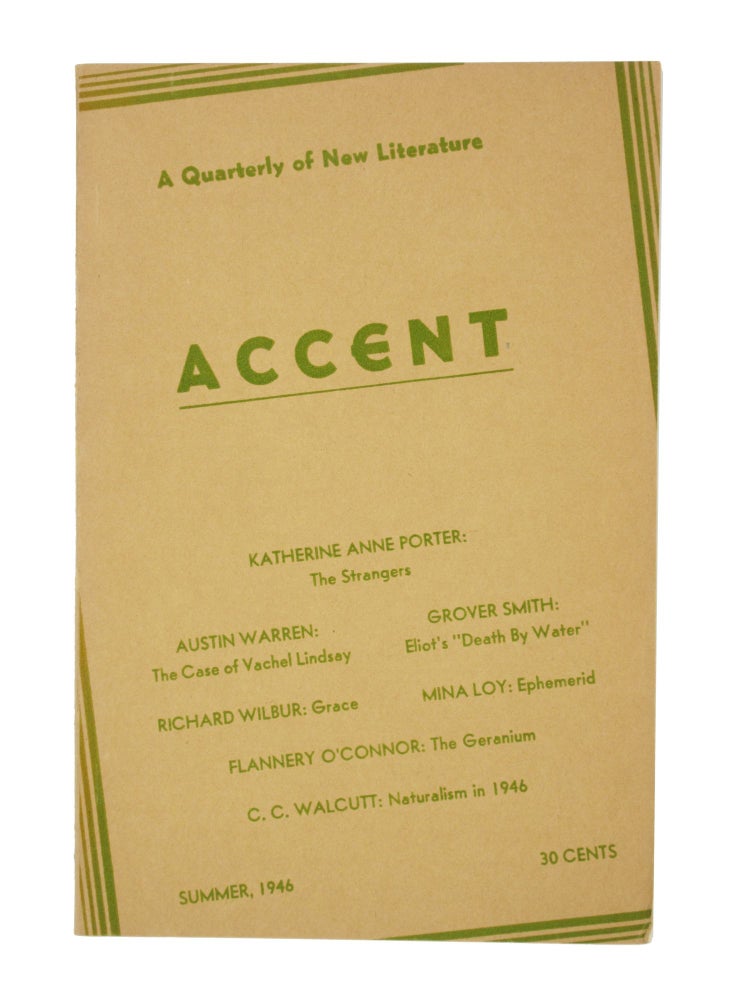
“The Geranium” in Accent (Volume 6, No. 4, Summer 1946)
Urbana, Illinois: Accent: A Quarterly of New Literature, 1946. Printed wrappers, 6 x 9 inches, 64 pp. Light bump to corner, else fine. Item #53
A fine copy of this rare literary magazine containing Flannery O’Connor’s (1925–1964) first published short story “The Geranium.” O’Connor was a prolific American short story writer, novelist, and essayist, and is counted among the greatest American fiction writers of the twentieth century and a master of the Southern Gothic style. Much of O’Connor’s writings are deeply imbued with her Roman Catholic faith—though her form stands in marked contrast to the moralistic and didactic methods that informed much of the religious writing of her time. Indeed, O’Connor’s fiction is noteworthy for its unsentimental realism and emphasis on the grotesque and sinister aspects of life in the South, often emphasizing themes such as poverty, violence, race, and alienation. She would describe herself in a 1955 letter as a “hillbilly Thomist” in response to those who would see in the dark and violent themes of her first novel, Wise Blood (1952), a “hillbilly nihilism.” As a devotee of Thomistic philosophy (she is purported to have read the works of St. Thomas Aquinas each evening) O’Connor adopted a philosophical realism that sought the true, the good, and the beautiful amidst an unvarnished world that is often wayward, unseemly, and vicious. For this reason, her fiction is markedly unafraid and gritty, and this fearlessness is evident in her first published short story, “The Geranium.” In February 1946, the unknown writer of twenty-one mailed her short story to the editors of Accent, a literary quarterly founded in 1940 by Kerker Quinn, a graduate student at the University of Illinois. The story, which was promptly accepted and published in Accent’s summer issue, centers upon an elderly man (referred to as “Old Dudley”) who reminisces about his lifelong home in the South from the noisy confines of New York City, where he resides with his daughter and family, and explores themes of racism, mortality, and meaning. Although O’Connor would die young at age 39 from complications relating to her years-long struggle with lupus, “The Geranium” would live on with her many other stories in the posthumously published Complete Stories (1971), which would win the prestigious National Book Award for Fiction in 1972. In a 2009 poll conducted by the National Book Foundation, Complete Stories was declared the best book to have ever won the National Book Award for Fiction, beating out other giants such as William Faulkner, Ralph Ellison, and Thomas Pynchon. This issue of Accent also includes contributions from Katherine Anne Porter, Mina Loy, and others.
Price: $475.00
